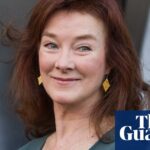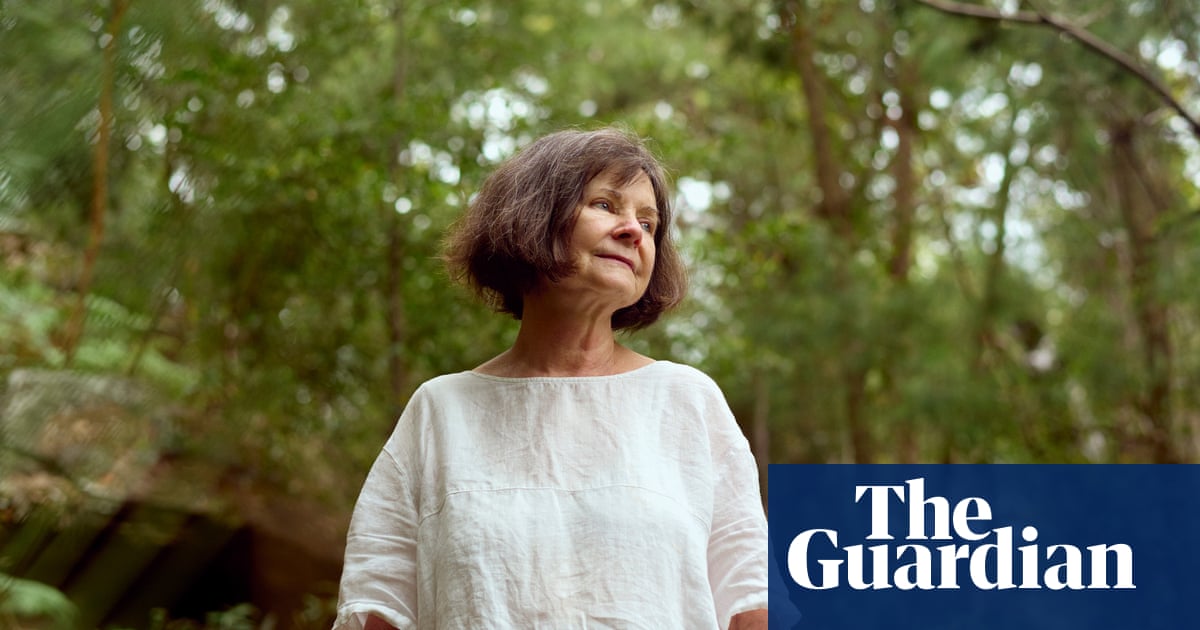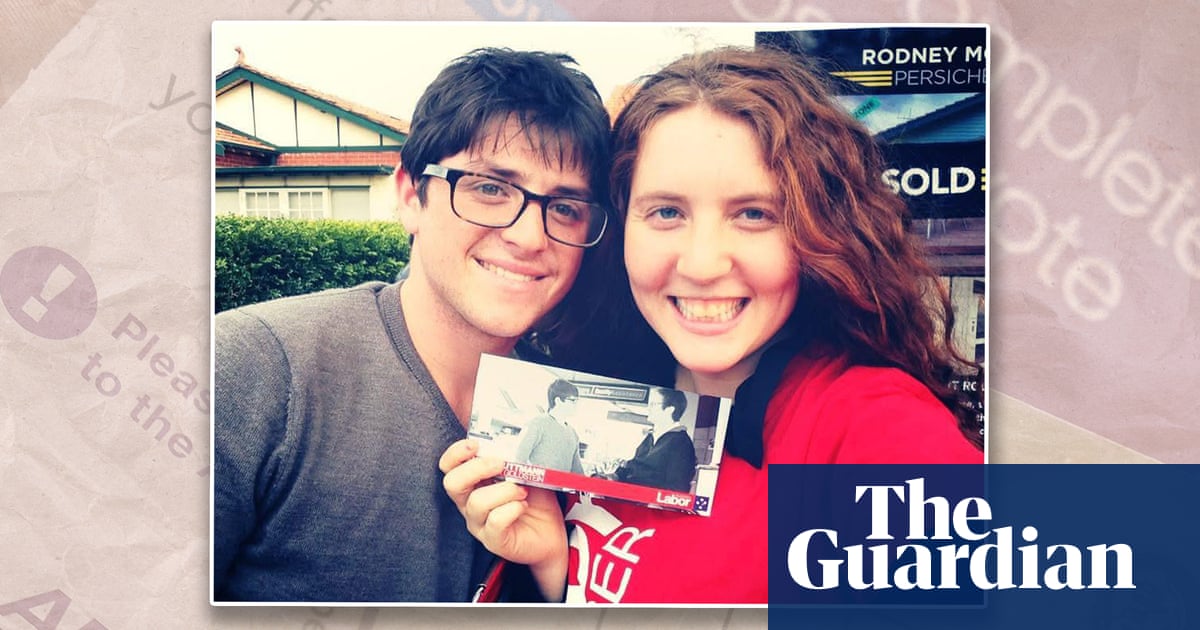Geraldine Brooks met her husband, Tony Horwitz, at journalism school in New York. It was 1982, they were both in their 20s. In the years that followed, they shared an award for their coverage of the Gulf War, and later, two sons. He won a Pulitzer for his reporting, she for her debut novel. Brooks grew up in Sydney and from time to time they’d move back, but ended up mostly on Martha’s Vineyard, each writing their books.
“We were romantic partners and business partners and colleagues,” she says. “We were the whole nine yards.”
Brooks has a new book out – a memoir, Memorial Days, about what happened after an apparently healthy Horwitz collapsed and died from sudden heart failure on a DC street in 2019. He was 60, on his own book tour. Soon, Brooks will move back to Avalon, on Sydney’s northern beaches, for good.
I catch an early morning bus to meet her there. Out the window the sea is cool and silver. The foreshore is dotted with unhurried people, sitting with their dogs and drinking coffee outside the little beach cafe.
“It’s got very staid,” Brooks says later as we walk together. “The whole peninsula used to be a redoubt of artists and surfers, and people who didn’t need to be in the city.” The transformation is pointless to deny – but the view is beautiful.
Up the hill is the Angophora reserve, which is full of its namesake, the coastal eucalypt – and Brooks’s favourite tree. “These pink ones, with the incredible twisty branches. I just can’t look at them enough – they’re like people … Tony always said you don’t want to be encountering one of these when you’ve dropped acid.”
When she talks about Horwitz, Brooks starts to laugh, her voice opening up. Otherwise she is guarded. Memorial Days flashes between the US and the aftermath of Horwitz’s death and a visit Brooks makes alone, several years later, to Flinders Island, off the coast of Tasmania. Among its giant rocks and empty beaches, she finally finds space to grieve. (“Nothing like a geological timeline to put you in your place,” she writes.)
The day of this walk, she’s just come back from another trip there working on a documentary, and you get the sense that there’s not a lot of her story she hasn’t already given, between that and the book. “I basically put everything I’ve got in there.”
But these traces of weariness are cushioned by the rustle of dry leaves, the ambient rush of wind or ocean, the soft bird noises, the distant suburban dogs – the busy, enveloping species of quiet particular to coastal bush brings her obvious pleasure. She points out trees, flowers, a cave. “Think we’ve got a magpie lark – or is it a miner?”
Brooks grew up in Ashfield, in Sydney’s inner west, first going properly into the bush as a young journalist in the 70s, covering environmental issues. “I just got to love it, like an addiction – an ardent need.” As we stroll, she returns again and again to the need to protect natural places.“The forces of money and industry are so strong and I think the politicians need to be much more courageous.”
The expat sketches of Australia in Memorial Days, of mateship and sandstone headlands, read slightly rose-tinted. But she is aware of the country’s haunted and bloody history; the way history can drive contemporary politics was at the heart of Horwtiz’s work in the States. The question of national pride, as we meet between Donald Trump’s second inauguration and the Invasion Day weekend – not much more than a year after the voice referendum was rejected – feels loaded.
“It makes me furious that Dutton is still poking the scab of it with his stupid stuff about not having the [Aboriginal and Torres Strait Islander] flags [on display in official government press conferences]. He’s taking a leaf out of Trump’s playbook: revving up division, at the same time as accusing other people of doing the very thing that he’s doing,” Brooks says.
“The years that I’ve spent so much time in America, I’ve just seen the division get worse and worse. It was very much Tony’s insight … and I think he was on to it a lot sooner than a lot of people.”
This is partly, she says, because Horwitz was so “incredibly open about people – he was the guy who would run towards people everybody else backed away from”.
“It’s the sense of fun that I miss most on the daily,” she goes on. “He was very fun to hang out with.”
In her 2011 Boyer lecture, Brooks described that when writing her novels, which are mostly historical, “someone rises up out of the grave and begins to talk to me”. Memorial Days confronts her with an almost literal version of this.
After Horwitz’s death, Columbia University wanted his papers for the archive. As Brooks gathered them together, she allowed herself, for more or less the first time, to read his journals, revisiting their time together through his eyes, and in a way, carrying on their conversations. “I can even do what I believe his death had denied me,” she writes in Memorial Days, “learn new things about him.”
“Pretty funny actually,” she adds in person, stopping to look at a particularly knobbly tree, “realising how little you know about your own life”. (Does she keep diaries herself? A firm no.)
after newsletter promotion
Horwitz’s voice is vivid in the book in other ways. Out on Flinders, Brooks peruses the “losing a spouse” books she’s been earnestly given – the couple’s own “tattered galley” copy of Didion’s The Year of Magical Thinking has been scathingly annotated by her husband during a stint as a book award judge.
Early on in the walk, not far into the forest, I ask her what it meant to her as a writer, to set her hand to what is, for better or worse, a very particular genre. She responds, almost fiercely, that she “didn’t really consider” it. “I wasn’t writing it for anybody else, I was only writing it for me,” she says. “This book, you know, I don’t even know if anyone needs to read it, but I needed to write it.”
So how does it feel, placing this intimate sorrow in the public realm?
“It feels weird,” she says. “But it’s what we all have in common, right? We’re all going to lose the people we love. That’s the human condition.”
Less universal is any understanding of how to deal with it. “We’ve really lost the plot on how helpful it is to the bereaved to have a set of expectations for things that you do,” she says.
Memorial Days shows Brooks reaching for the ritual structure she sees in other traditions – Balinese, Aboriginal, Jewish (she converted when she and Horwitz married) – that “gives you space and time in a way that we don’t give anyone any space or any time any more”.
“When a Balinese woman loses her husband, she immediately has a lot of ritual work to do, but she does it surrounded and supported by her community,” she says. “It’s demarcating public and private in a way that gives people room – and everybody in the community [knows] what their role is, instead of trying to figure it out.”
She writes of a “Potemkin Personality” in the wake of her husband’s death – the pressure to hold it all together pushes her away from the grief she needs to access so she can eventually, in some way, set it down.
“I felt like I was faking my life, because I was pretending to be normal, and doing all the things that a normal woman was expected to do … and it was just so effortful – because I didn’t feel like the person that I was portraying at all.”
Somewhere in the Australian landscape, she found a way “to stop perseverating on everything I was missing”.
“By the time I went back to my normal life, I didn’t feel like I was pretending to be normal any more, I actually felt normal.”
At a deeper section of the walking track, she spots part of a pair of king parrots – a red one – listening for the blue that must be close by. Only when you see the pair are you sure what species you have got, she says. “The partner’s usually right there as well.”
Later, looking back on the “therapeutic exercise” of the memoir, something else occurs to her. “It’s actually a love story, in the end.”










